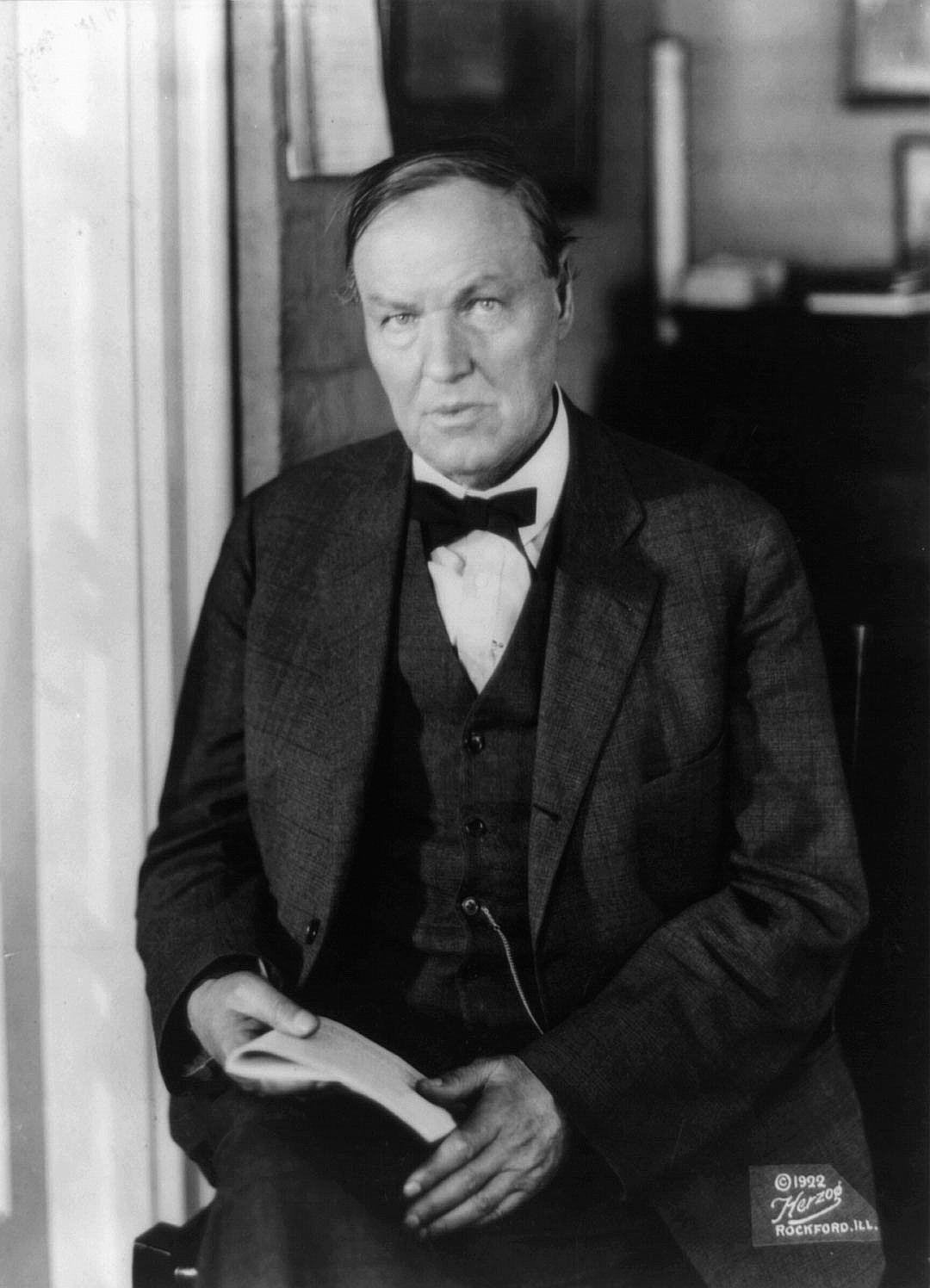Clarence Darrow Frases famosas
“A primeira parte de nossas vidas é arruinada por nossos pais, a segunda por nossos filhos.”
The first half of our lives is ruined by our parents, and the second half by our children
citado em "The dictionary of humorous quotations" - Página 62, de Evan Esar - Doubleday, 1949 - 270 páginas
All men do the best they can. But none meet life honestly and few heroically.
citado em Infidels and Heretics : An Agnostic's Anthology (1929) editado por Clarence Darrow e Wallace Rice, p. 206
citado em "Citações da Cultura Universal" - Página 23, Alberto J. G. Villamarín, Editora AGE Ltda, 2002, ISBN 8574970891, 9788574970899
“Não acredito em Deus, pois não acredito na Mãe Ganso.”
Mamãe Ganso (Mother Goose) - referência à fictícia autora de uma série muito popular de contos infantis publicada em Londres no século XVIII.
Clarence Darrow frases e citações
Clarence Darrow: Frases em inglês
Why I Am An Agnostic (1929)
“History repeats itself. That's one of the things wrong with history.”
As quoted in Peter's Quotations: Ideas For Our Time (1977) edited by Laurence J. Peter, p. 248
Voltaire (1916)
Fonte: The Story of My Life (1932), p. 383
The Railroad Trainman (November 1909)
Voltaire (1916)
Address to the court in "The Communist Trial", People v. Lloyd (1920)
Fonte: The Story of My Life (1932), p. 267
As quoted in a eulogy for Darrow by Emanuel Haldeman-Julius (1938)
Resist Not Evil (1904)
Scopes Trial, Dayton, Tennessee (13 July 1925)
Why I Am An Agnostic (1929)
Fonte: The Story of My Life (1932), Ch. 1 "Before The Beginning"
As quoted in a eulogy for Darrow http://www.positiveatheism.org/hist/darrow1.htm by Emanuel Haldeman-Julius (1938)
As quoted in Ain't Nobody's Business If You Do" by Peter McWilliams, from 2000 Years of Disbelief (1996) edited by James A Haught p. 817
Voltaire (1916)
As quoted in Improving the Quality of Life for the Black Elderly: Challenges and Opportunities : Hearing before the Select Committee on Aging, House of Representatives, One Hundredth Congress, first session, September 25, 1987 (1988)
This quote's earliest known source is from Leon C. Megginson (see Charles Darwin)
Misattributed
Why I Am An Agnostic (1929)
Funeral oration for John Peter Altgeld (14 March 1902); published in an appendix to The Story of My Life (1932)
Fonte: Resist Not Evil (1904), p. 39
Voltaire (1916)
“All men do the best they can. But none meet life honestly and few heroically.”
As quoted in Infidels and Heretics : An Agnostic's Anthology (1929) edited by Clarence Darrow and Wallace Rice, p. 206
Voltaire (1916)
“Hell, that's why they make erasers.”
On mistakes, reported in Irving Stone, Clarence Darrow for the Defense (1941), p. 75
